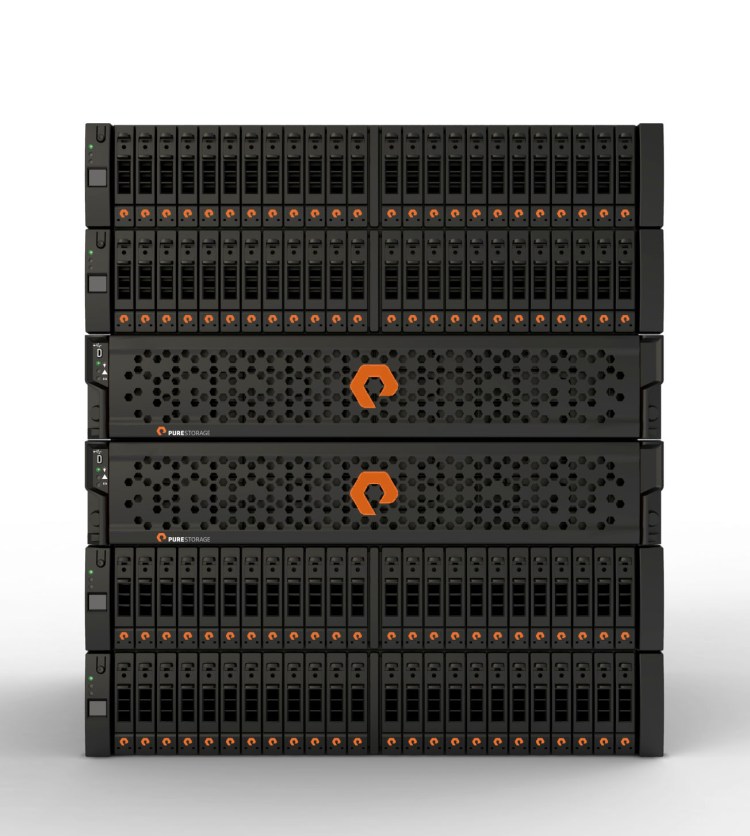Pure Storage, a company that sells all-flash storage hardware for companies to deploy in their data centers, today filed a Form S-1 with the U.S. Securities and Exchange Commission, kicking off the process to go public.
The company is looking to raise $300 million in the IPO and start trading on the stock market under the symbol PSTG, according to the document.
(Update on Sept. 24: A new SEC filing shows the company wants to raise $450 million in the IPO.)
Pure Storage produced a $49 million net loss on $74 million in revenue in the quarter that ended on April 30, according to the document.
Morgan Stanley, Goldman Sachs, Barclays Capital, and Allen and Co. are among the joint underwriters of the IPO.
Pure Storage’s last publicly announced funding round, totaling $225 million, came in April 2014. Investors in that round included T. Rowe Price Associates, Tiger Global, Wellington Management, Greylock Partners, Index Ventures, Redpoint Ventures, and Sutter Hill Ventures. ServiceNow president and chief executive Frank Slootman has also invested in Pure Storage.
Pure Storage understands the challenges of the current flash storage market.
“The market for all-flash storage products is rapidly evolving,” the company said in its amended S-1 filing. “As a result, our future financial performance will depend on the continued growth of this market and on our ability to adapt to emerging customer demands and trends. Sales of our products are currently focused on use cases that require performance storage products such as virtualization and transaction processing. Many of our target customers have never purchased all-flash storage products and may not have the desire or available budget to invest in a new technology such as ours. It is difficult to predict with any precision customer adoption rates, customer demand for our products or the future growth rate and size of our market. Our products may never reach mass adoption, and changes or advances in alternative technologies or adoption of cloud storage offerings not utilizing our storage platform could adversely affect the demand for our products.
“Further, although flash storage has a number of advantages as compared to other data storage alternatives, such as hard disk drives, flash storage has certain limitations as well, including a higher price per gigabyte of raw storage, more limited methods for data recovery and reduced performance gains for certain uses, including sequential input/output, or I/O, transactions. A slowing in or reduced demand for all-flash storage products caused by lack of customer acceptance, technological challenges, alternative technologies and products or otherwise would result in a lower revenue growth rate or decreased revenue, either of which would negatively impact our business and operating results.”
Violin Memory, a company that developed flash storage hardware, had a disappointing IPO in 2013.
VentureBeat's mission is to be a digital town square for technical decision-makers to gain knowledge about transformative enterprise technology and transact. Learn More

